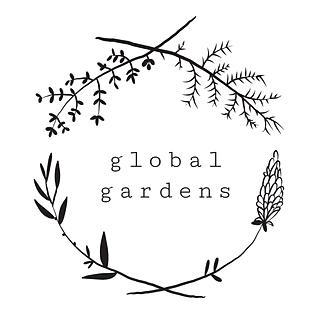3 YEARS OF OUTDOOR PLAY @GLOBAL GARDENS
- Global Gardens
- Feb 23, 2023
- 4 min read
Updated: Feb 28, 2023
Global Gardens Forest School Leader and artist Johana Hartwig reflects on 3 years of outdoor play at Global Gardens and her approach to forest school....

My approach to the forest school at GG
By Johana Hartwig
Developing a forest school at Global Gardens in an urban setting makes a lot of sense to me. Not only do myself and the city-based families that come to the sessions mostly cycle or walk there, we also have smaller, and for some families no, gardens or car to travel to forests. So creating a dynamic, local, outdoor, green play-space and getting there without fossil fuels feels beneficial on so many levels.
The Global Gardens forest school space itself was pretty rough at the start, as with many allotment spaces it was mostly brambles and quite a bit of rubbish too. Over the course of the sessions it has slowly grown with the families and activities, into the space it is now. The very first session involved the children getting to know the boundaries of the space and making paths with flour and then filling wheelbarrows with wood-chip to define their space. Digging and moving woodchip (and sometimes children) around in wheel barrows is still a favourite activity.

Forest school is child-led and subtly educational. It is non-prescriptive and centred around learning through doing. The learning sinks in so much better that way. The forest school ethos is to be flexible, change according to children’s interests, weather, seasons and things that come up - sometimes it’s a problem turned into something fun, like the GG trough being frozen, so to get the water for the fire safety bucket the children that week had to work out how to break the ice. We’ve run a huge range of sessions, I particularly enjoy seasonal, foraged, cooking. One session we put real stones into the soup as I read the story ‘stone soup’, mixing in a bit of magic, thinking about ethics / choices, in this instance sharing, through story, cooking, spoken reflection.

The forest school space holds a fire circle, two swings under a tall poplar tree, a mud kitchen, balance logs, small forest garden allotment and a shelter. I love the shelter, the designs on it were made by the children over lockdown. We wanted to keep sessions going, but couldn’t, so wanted to give the children a real activity linked to forest school, so in the post the families received pieces of canvas, with a stamped addressed envelope and they had to find, draw around and cut out a leaf shape and post it back. When lockdown ended and they came back to the space, they found their designs sewn to a large canvas shelter (made by Roland from Bespoke Tents), which I think many of them felt proud of, we then spent time looking at and identifying the types of leaves they had found together. A lot of the first lot of forest school children have gone now, but their designs, their presence is still in the space. The same as the clay bowls we made with Jack the potter, pressing in the impressions of plants into the clay, saying the names of herbs, having the bowls fired and then filling them with herby flatbreads and broth and eating out of them.

Most activities are based around the plants, trees and wildlife. By identifying wild flowers such as evening primrose, eating them, using them as dyes to colour flags, noticing which insects are on them, the children learn experientially, enjoyably and hopefully go on to share this knowledge with others and develop a love and respect for their natural environment. Nothing is prescribed, activities are suggestions and not compulsory, some sessions a child might choose to spend most of their time in the hammock or playing with a stick, which is also fine. So much schooling is about staying still and having to learn at a particular pace, that doesn’t suit everyone. Forest school holds different values and doesn’t have the pressure of being an institution. I’m not even sure it should be called ‘school’, I think ‘forest learning’ is a better name, has a less prescriptive feel.

On a personal level I feel good about being able to contribute to making and sustaining this space and being able to travel to work there by bike. I particularly like the challenge of how much I can fit on the bike (two panniers and a rack). I grew up in an urban environment, but always had my head buried in nature books, carefully turning over stones to find insects, making little worlds in the tarmac cracks in the playground where weeds grew and climbing to the tops of the trees in parks. I love the way forest school makes not only the children, but the parents (and those leading it) feel good, because most of us spend too much time indoors, on our phones and having a couple of hours dedicated time to playing, cooking, growing, chatting, eating, in the outdoors together in our locality does feel good.
With a huge thanks to the National Lottery Community Fund in Wales and the Hilden Trust for supporting these sessions over the years.


















Comments